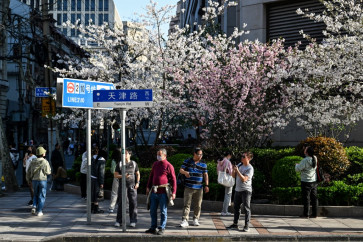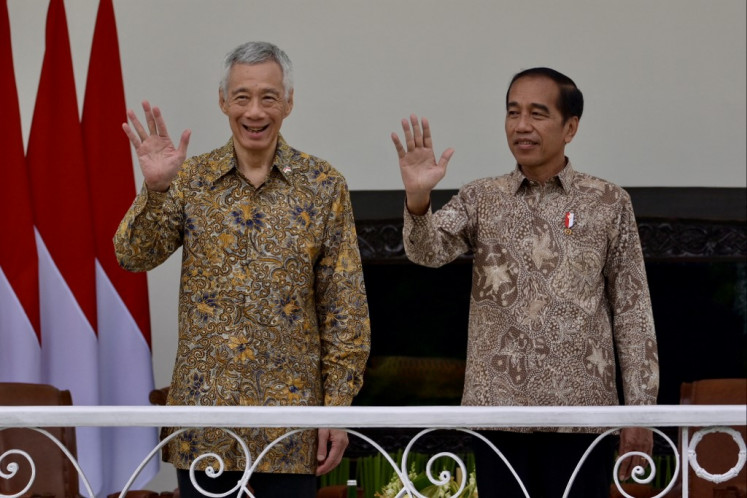Japan proposes to build new airport for Jakarta
Japan has proposed to develop a new seaport and airport for Greater Jakarta, in addition to the planned mass rapid transit (MRT) system and other infrastructure projects, as part of its estimated 4 trillion yen (US$39 billion) Metropolitan Priority Area (MPA) master plan to ease infrastructure bottlenecks in the nation’s capital
Change Size

J
apan has proposed to develop a new seaport and airport for Greater Jakarta, in addition to the planned mass rapid transit (MRT) system and other infrastructure projects, as part of its estimated 4 trillion yen (US$39 billion) Metropolitan Priority Area (MPA) master plan to ease infrastructure bottlenecks in the nation’s capital.
“We are heading toward a firm agreement to build a new airport and seaport, in addition to the existing Soekarno-Hatta International Airport and Tanjung Priok port,” Japanese Trade and Industry Minister Yukio Edano told a news conference in Jakarta on Thursday, after the second MPA steering committee meeting with Indonesian officials.
Hatta Rajasa, Indonesia’s Coordinating Economic Minister, signaled the green light for Japan’s plan, saying that a technical committee had been ordered to conduct a feasibility study for a new seaport in Cimalaya, West Java, and a new airport in the province’s area.
“We acknowledge that [the current seaport and airport] will not be enough over the medium- and long-term,” Hatta said.
Tanjung Priok is Indonesia’s largest port and handles 70 percent of the total import and export traffic in the country, while the capital’s sole commercial airport, Soekarno-Hatta, is currently trying to cater to almost double the number of passengers than it was designed to deal with.
Indonesia and Japan last year signed a Memorandum of Understanding on the development of the MPA, which involves collaboration between the Japanese and Indonesian governments to construct infrastructure and transportation facilities in Greater Jakarta and its surrounding areas, in an effort to ease congestion and bottlenecks.
Greater Jakarta is home to 10 percent of the total 237 million population of Indonesia. The area is also the origin of 60 percent of national exports, and it is the location where most economic decisions are made.
But infrastructure bottlenecks have often hampered economic growth and activities in the areas, which are infamous for their heavy traffic.
Edano and Hatta said progress has been made on the planned 17 fast-track projects, which include power plants, clean water plants, a flood management system and road networks in Jakarta, Bogor, Depok, Tangerang and Bekasi.
The estimated 600 billion yen MRT project, according to Hatta, is one example of the progress made by the MPA program, with tenders by potential investors within sight, and with Japan’s Official Development Assistance (ODA) ready to provide soft loans.
“Japan’s contribution toward infrastructure development in a number of countries is our part of our stance in sharing experience and technology,” Edano said. Japan was the fourth-largest foreign investor in Indonesia last year, with a total realized investment of $712.6 million. The country is also Indonesia’s number one export destination for non-oil and gas products, and the second-largest supplier of non-oil and gas goods after China.
The MPA development plan is also part of Indonesia’s economic master plan, intending to become one of the world’s 10 largest economies by 2025, with investments of thousands of trillions of rupiah needed.
The Japanese minister also visited Vice President Boediono and Industry Minister M.S. Hidayat on Thursday.
Hidayat said that, during the meeting, he asked the Japanese minister to encourage Japanese companies to invest not only in infrastructure but also in processing industries, such as textiles.









